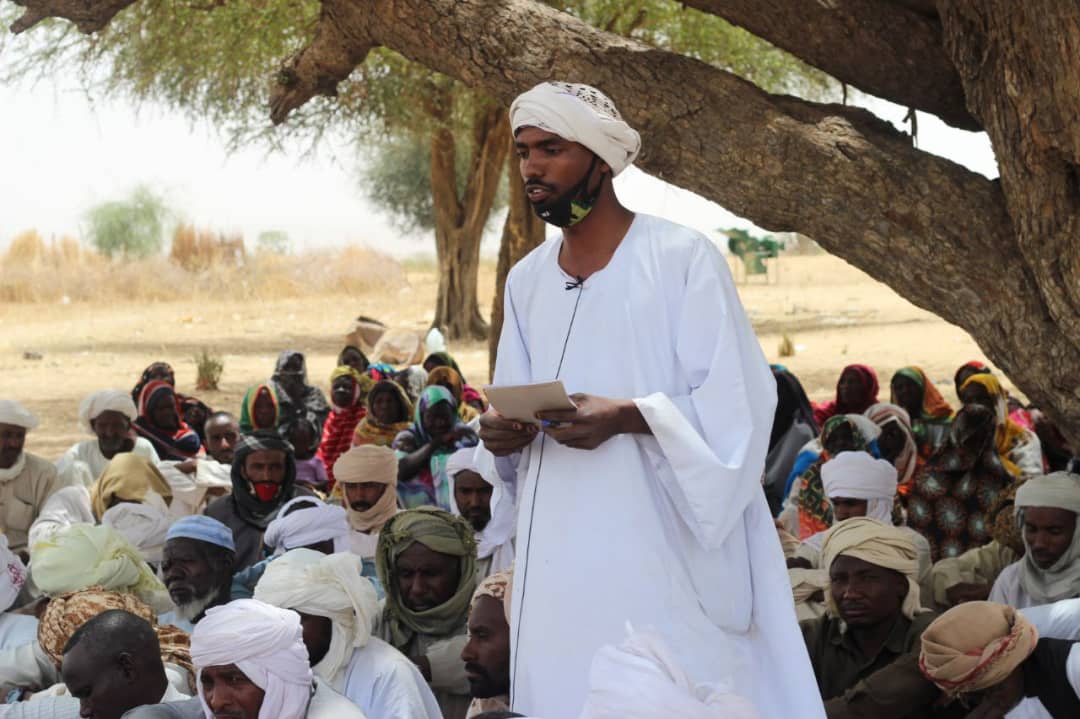THREE THINGS YOU CAN DO FOR SUDAN
Mon, Jun 12, 2023
Read in 4 minutes
The crisis in Sudan is still worsening everyday. Here are three ways you can take action.

On the 15th April 2023, violence broke out in Sudan’s capital Khartoum between the country’s army and a paramilitary group called the Rapid Support Forces. The situation has continued to escalate and has spread to areas across the country, including the Darfur region.
At least 1000 people have been killed in the conflict including at least 487 civilians. The country has come to a standstill with hospitals closed, citizens struggling to access basic food and sanitation supplies.
Violence is not new to Sudan, with at least 300,000 people forcibly displaced in the country since 2019, and one in three Sudanese nationals currently displaced. The country is home to another 1.1 million refugees from other countries seeking refuge in Sudan, making it the 7th largest refugee hosting country in the world. Many of these refugees (especially from Ethiopia, Syria, South Sudan and Eritrea) currently in Sudan are also in areas affected by the crisis. These refugees face additional challenges to locals and many have begun their journeys onwards or back towards the countries they originally fled from. These escalating number of displaced communities will also create additional pressure on host communities in resource scarce countries like Chad and South Sudan. They need our support.
To compound these disasters, Sudan is facing extreme food shortages in part due to the prolonged impact of droughts caused by a climate crisis. Sudan is the 15th hungriest country in the world. Urgent humanitarian assistance is needed in Sudan, yet access to humanitarian services is not guaranteed due to the violence, with large aid agencies pulling out their staff for safety reasons. In many locations, the humanitarian response is being led by local organisations that have remained in conflict zones or moved to the destinations of the people fleeing the violence.
Three Things You Can Do for Sudan
-
Keep it in the news
Although it is not long since the violence escalated, the international news coverage of Sudan has reduced to the extent that it doesn’t even feature on world pages for Africa, in comparison to the war in Ukraine which gets its own permanent feature. Keep the crisis in Sudan front of mind so that the millions of people affected are not forgotten by the rest of the world. Share news reports on-line, write to newspapers, tweet, write blogs, bring it up in conversations.


-
Demand more humanitarian aid from your government
The UK government in 2021 reduced the commitment to overseas aid from 0.7 to 0.5% of GDP with over £2 billion being cut within a year. Bi-lateral spending in Africa by the UK government has reduced to £648 million this year, four times less than the £2.4 billion of the overseas development budget spent within the UK. Continued cuts to overseas aid will mean that the UK can do far less to respond to crises that are immediately harming millions of people and causing ripple effects that will affect the whole world. Consider writing to your member of parliament or to the all-party parliamentary group on foreign affairs expressing the urgency of reversing this trend.
-
Donate
Search for “donate to Sudan” online and a number of sponsored links fill your screen showing ways you can support the crisis financially. Many of these links are to large humanitarian agencies who have good experience in getting the right kind of aid to the people who need it, though at what cost? For an alternative approach consider giving funds directly to a grassroots organisation that is responding to the crisis within their own communities. Local organisations often understand the more pressing needs and will build in long term plans to help the community for the longer term once the crisis is out of the fundraising spotlights. ganisations often understand the more pressing needs and will build in long term plans to help the community for the longer term once the crisis is out of the fundraising spotlights.
Donate through Reframe and every penny raised goes to local organisations run by people who have themselves been forcibly displaced.